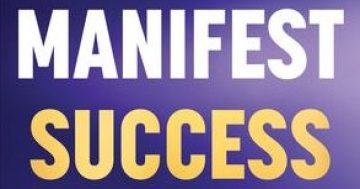Brigette Hyacinth has found that while many leaders say they want feedback on their decisions, few are actually prepared to act on it.
 My new boss told me to never be afraid to give feedback.
My new boss told me to never be afraid to give feedback.
The next Monday morning in a meeting, I happily shared my viewpoint on a new policy.
Thereafter, I noticed my boss’s disposition towards me changed.
He stopped talking to me. I was shunned.
I even felt the effects of this in my monthly performance appraisal, where he noted I was not supportive of the organisation, and I needed to be a better team player.
The picture was quite clear — truthful feedback was not appreciated.
Heather, a co-worker, approached me and said: “You are new, honest feedback is just lip service, don’t fall for it.”
I quickly learned loyalists and sycophants were appreciated, while realists were punished.
They built a culture of ‘yes employees’. I knew I had so much to offer, yet I couldn’t.
Six months later, my boss was fired.
He made a mistake on a proposal that cost the company its biggest client.
This could have been easily avoided if he had just asked for honest input.
Listening is the most powerful skill a leader can master but it requires humility.
I have some suggestions on how this can be achieved.
Many people think humility is a weakness, but it actually takes strength.
It makes you approachable.
The more humble you are, the more team members will be motivated to share their suggestions and recommendations with you.
One of the best employee engagement tools is transparency.
To be transparent requires two-way communication; therefore feedback from employees is important.
Honesty creates a solid platform to building a relationship of trust and loyalty.
Employees want to be heard and they want to be respected. Listening shows that you care.
Additionally when you receive feedback, act upon it.
This helps improve employee morale.
The ego blinds us with a false sense of indestructibility, clouds our judgement thus leading to poor decisions and a break-down of relationships.
Build a strong team and surround yourself with smart, passionate and highly competent people.
Researchers at the University of Michigan found that flattery and opinion conformity made leaders overconfident.
This resulted in biased strategic decision making and an overall disconnect from the execution on the ground.
Developing leadership skills is a lifetime project.
It’s too easy, as a leader, to feel like you have to be the one who knows everything.
Great leaders recognise they need to keep learning.
Leaders need to be willing to learn and be open to seeking input from both inside and outside their organisations.
Feedback allows them and the organisation to grow.
Additionally, treat everyone you meet with respect, from the janitor to the Chief Executive.
Great business tips may come from the most unlikely sources.
As a leader, your job is to encourage others around you to be open and honest without a negative consequence.
When employees offer their ideas and differing opinions be open-minded.
Organisations that remain strong understand the need to embrace change and continuous improvement.
More than ever, leaders have to master the skill of ‘leading while listening’.
The success of your organisation depends on it.
*Brigette Hyacinth founded the MBA Caribbean Organisation which conducts seminars and workshops in leadership, management and education. She can be contacted at www.mbacaribbean.org.
This article first appeared on Brigette’s blogsite











